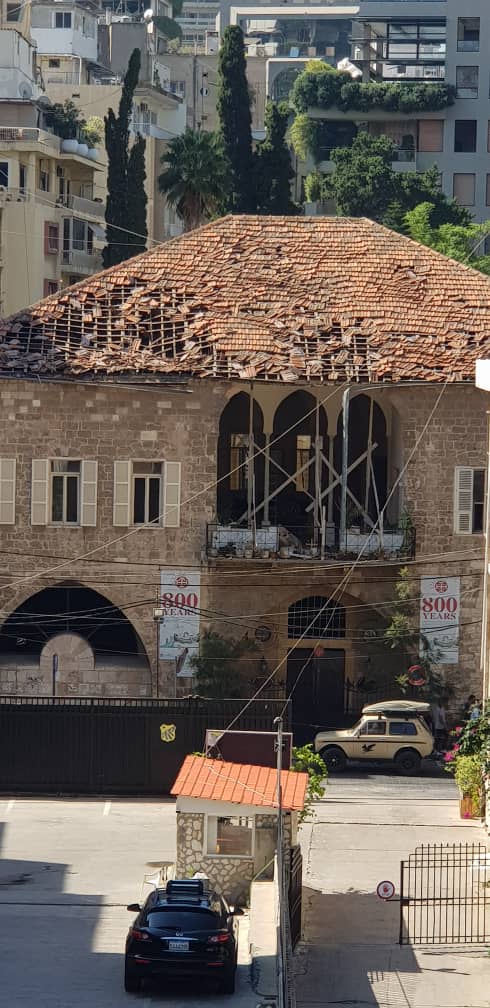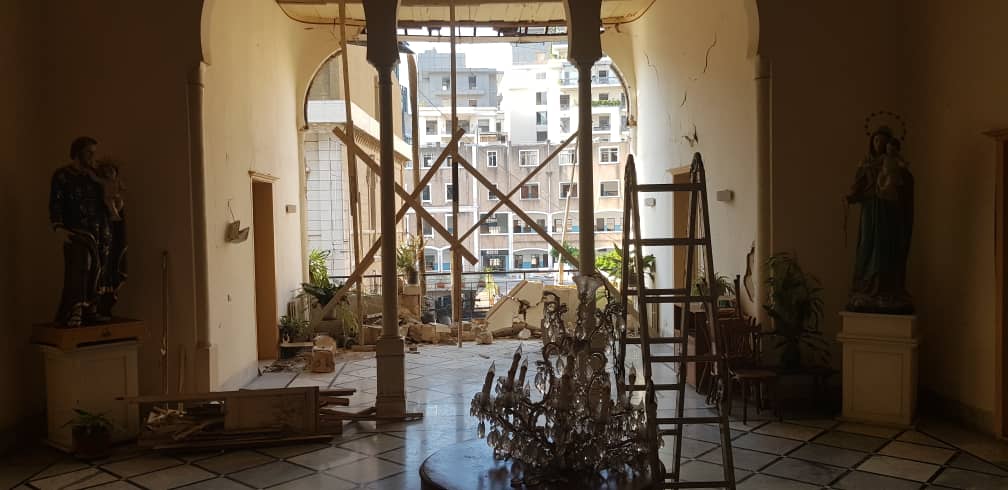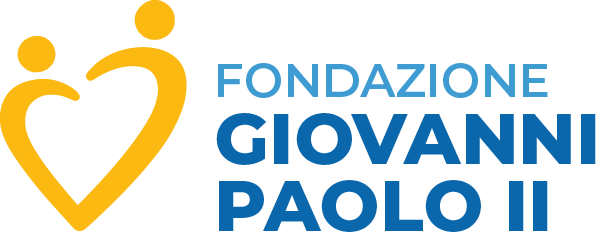
Toscana solidale, anche con il Libano. L’intervista a Gianluca Mengozzi, portavoce del Terzo settore
di Renato Burigana
Gianluca Mengozzi è stato recentemente riconfermato per il secondo mandato nel ruolo di portavoce del Forum Toscano del Terzo Settore, che rappresenta 9.750 organizzazioni sul territorio tra volontariato, associazioni di promozione sociale, cooperative sociali. Mengozzi, presidente di ARCI Toscana dal 2011, è un architetto specializzato in restauro, più volte incaricato di ricerca e insegnamento presso il Dipartimento di Architettura dell’Università di Firenze. Ha partecipato a interventi di solidarietà internazionale all’estero soggiornando a lungo anche in Libano e in Siria. Dopo l’esplosione del 4 agosto si è mobilitato subito per aiutare gli abitanti di Beirut.
- Presidente lei conosce molto bene il Medio Oriente, ha vissuto in Libano dove l’ARCI ha alcuni importanti progetti. Come vede e come vive la situazione del Paese dei cedri?
“Ho sempre pensato che il Libano fosse uno specchio in cui l’Italia e gli Italiani possano guardarsi per conoscersi meglio. L’Italia condivide infatti con il Libano molte delle contraddizioni della società, il fatto di essere stato per molti anni frontiera tra blocchi e universi politici, la vulnerabilità dovuta alla collocazione geografica, il fatto di essere una porta di ingresso per chi vuole entrare in Asia o in Europa. Credo che tutti noi dovremo ricordarci sempre di essere grati al Libano per il grandissimo contributo che ha dato alla civilizzazione europea: la gente di questo piccolo lembo di terra ci ha portato in dono gli strumenti con cui si è costruita la storia del Mediterraneo, l’alfabeto, la navigazione, il commercio. Stupisce, frequentando il Libano, il grande affetto che la popolazione ha per gli Italiani. Ho provato molte volte a chiedere ad amici e colleghi quale sia la ragione di questo sentimento di stima e simpatia. Una delle risposte che ho avuto più spesso, oltre alla sintonia data da storia e cultura comuni, è quella che “l’Italia non ci ha mai lasciati soli, e in cambio della loro solidarietà gli Italiani non ci hanno mai chiesto nulla”. Sono parole importanti, su cui dovremmo riflettere con attenzione. Soprattutto adesso che il Libano è tornato da almeno due anni in una situazione di gravissima complessità. La popolazione libanese, articolata in un colorato e multiforme mosaico di fede religiosa e appartenenza a differenti tradizioni culturali, è una popolazione che vuole la pace. La rappresentazione che a volte se ne fa, e cioè quella di un popolo con armi in ogni casa e sempre pronto allo scontro militare, è non solo falsa ma profondamente ingiusta. Come qualsiasi altro popolo, anche i Libanesi vogliono godersi la vita, coltivare gli affetti, vivere secondo le loro tradizioni, sempre aperti, come da millenni sono, allo scambio e alla relazione con culture diverse. Dopo aver vissuto i lunghi anni di una feroce guerra civile voluta dalle potenze straniere, i cui segni ancora rimangono su alcuni edifici di Beirut o di Tripoli, e dopo lo scontro del 2006 con Israele, la democrazia libanese ha cercato una strada per affermare la propria volontà di pace. La grande esplosione al porto di Beirut, con il suo portato di morti e distruzione, ha fatto emergere in modo evidente la gravità della situazione economica e politica. Questo piccolo Paese ospita dal 2011 più di un milione di profughi siriani. Ricordo spesso, a chi grida all’invasione dell’Italia per qualche sbarco di disperati in fuga da fame e guerra, che fatte le proporzioni rispetto alla popolazione libanese è come se in Italia ospitassimo 20 milioni di profughi, e non le poche migliaia attualmente presenti sul nostro territorio. Dal 2019 è poi esplosa una crisi finanziaria che ha svalutato in modo vertiginoso la Lira libanese, con una fortissima perdita di potere di acquisto per le famiglie. A fronte di ciò, nel perdurare dell’instabilità indotta dalla guerra in Siria e dalle ricorrenti crisi militari tra Israele e Territori Palestinesi, la classe politica libanese sembra incapace di trovare la determinazione per dare al Paese un governo solido tramite un patto nazionale stabile. Di recente si aggiunta la difficoltà da parte delle autorità di assicurare continuità nella fornitura idrica ed elettrica. Il popolo libanese è serio, aperto e laborioso, e non merita tutto questo. La comunità internazionale deve attivarsi per alleviare le conseguenze di questa situazione, soprattutto per le fasce sociali più vulnerabili. L’Italia deve far sentire la sua voce. Ma lo si deve fare ora, subito. Le immagini da poco apparse sui media, che mostrano Beirut immersa in un buio irreale per la mancanza di carburante per l’alimentazione delle centrali elettriche, chiamano tutti ad un intervento immediato.
- Dopo l’esplosione lei ha promosso insieme ad ARCI, Fondazione Giovanni Paolo II, Fondazione il Cuore si scioglie e l’Università di Firenze un progetto per il restauro dello storico convento dei francescani di Beirut, come segno di vicinanza per quello che era successo. A che punto siamo con quel progetto?
“Nei giorni successivi all’esplosione al porto di Beirut in molti ci siamo chiesti che cosa potevamo fare. In Toscana la Fondazione il Cuore si scioglie, con la grande capacità di visione che la contraddistingue, si è immediatamente attivata chiamando la Fondazione Giovanni Paolo II e Arci Toscana a un tavolo in cui ragionare su che cosa servisse. La scelta è ricaduta sul supporto alla situazione di disagio post traumatico dei più piccoli, al sollievo delle loro famiglie senza casa, alla necessità di assicurare continuità scolastica, educativa e la possibilità di giocare. Accanto a questi temi è però emersa anche la possibilità di dare un importante segnale sulla salvaguardia del patrimonio storico e monumentale della capitale libanese colpito dall’esplosione, ed è venuto naturale a tutti noi pensare al convento dei Francescani, che ha subito danni gravissimi. Per questo abbiamo coinvolto il Dipartimento di Architettura dell’Università di Firenze e il DiaCon, uno spin off universitario di alta specializzazione in diagnostica e restauro dell’edilizia storica. Questa iniziativa ha avuto molto risalto mediatico e in Italia è stata particolarmente apprezzata dal nostro ministero degli Affari Esteri e della Cooperazione Internazionale, che hanno ritenuto di sviluppare questa idea inviando in Libano una squadra di tecnici a collaborare con le autorità libanesi sulla salvaguardia dell’edilizia storica. Purtroppo il riaccendersi della pandemia, nell’ottobre 2020, ha impedito di realizzare la missione di scambio dei ricercatori toscani a Beirut. Si sono comunque fatte riunioni da remoto nelle quali sono emerse le indicazioni per mettere in sicurezza le strutture del Convento, per impedire di aumentare il degrado delle strutture storiche. Adesso gli edifici del complesso monumentale possono affrontare in sicurezza la brutta stagione senza timori di ulteriori degradi. Si è poi proceduto al rilievo digitale dell’intera area conventuale: l’obiettivo è infatti quello di realizzare un progetto-quadro interamente digitalizzato e navigabile da presentare, assieme a un progetto di intervento, a chi finanzierà le operazioni di ripristino integrale. Nelle valutazioni non è stato trascurato alcun aspetto, dalle vetrate decorate con figure di santi strappate via dall’onda d’urto, al tetto, alle strutture delle terrazze e infine al giardino storico, una delle poche aree verdi del centro storico, che attende anch’esso una riqualificazione. Non appena sarà possibile, e speriamo tra poco, verrà effettuata una missione per procedere con i lavori finora avviati. Credo che in questa occasione, ancora una volta, la Fondazione Giovanni Paolo II e Arci Toscana, assieme alla Fondazione il Cuore si Scioglie, siano riuscite a mettere in atto un percorso virtuoso di relazione pragmatica e fattiva, riuscendo a risolvere problemi reali.
- La Toscana è una terra di collaborazione e di solidarietà con i suoi mille circoli, le parrocchie, le associazioni e alcune Fondazioni da sempre impegnate verso il Medio Oriente. Come vede il volontariato dopo questi mesi in cui non abbiamo potuto fare incontri e riunioni in presenza?
“In questi lunghissimi mesi di pandemia è stato impossibile incontrarsi, riunirsi e fare attività di comunità come quelle che le nostre organizzazioni collettive propongono da decenni al loro corpo sociale. È stata una grande sofferenza, di cui solo adesso, col procedere delle vaccinazioni, si avverte un sollievo. Le centinaia di migliaia di donne e uomini che ogni giorno si dedicano al volontariato nelle tante associazioni e fondazioni toscane che animano la vita civile delle nostre comunità hanno rischiato di vedere messa in discussione una modalità di azione sociale di successo e di forte impatto. C’è stato senza dubbio smarrimento, talvolta angoscia, per una situazione senza confronti. Mai in precedenza, se non nelle guerre, avevamo avuto una situazione simile. Si pensi a cosa ha significato non potersi riunire, non potersi dedicare alla convivialità per raccogliere fondi, non poter ballare, fare spettacolo, fare cultura e ritrovarsi attorno ad un tavolo. Si pensi a cosa abbia significato tutto ciò per i più giovani e per gli anziani, costretti ad una solitudine amplificata dalla paura del contagio. Adesso il nostro compito è trasmettere alla cittadinanza la sensazione che è possibile ritrovarsi in sicurezza, che attenendosi alle regole è possibile ricominciare, che il peggio è passato. Questo ci servirà anche a ridare vigore alle relazioni di solidarietà con il Medio Oriente, organizzare incontri, occasioni di informazione, di animazione sociale sulle questioni che affliggono paesi e popoli amici della Toscana. Non si tratta di riannodare fili spezzati, perché la solidarietà è rimasta viva anche in questi difficilissimi mesi, e molte delle attività correnti di aiuto e collaborazione sono state trasformate in attività per il contrasto della pandemia per aiutare la popolazione più vulnerabile. Ma adesso è il momento per recuperare presto la pienezza e l’efficacia delle attività, e combattere quella sensazione che talvolta si sente, in parte alimentata anche da messaggi di sconsiderati, che in tempi di pandemia non ci si possa permettere di aiutare chi sta male, che non si debba guardare fuori dai confini delle nostre case. Bisogna continuare a dire che è vero il contrario: dobbiamo esprimere al massimo livello la grande forza della solidarietà di cui la comunità toscana è capace, alzare lo sguardo oltre il giardinetto attorno a casa, e cercare gli occhi di chi, dal Medio Oriente, attende di sentire ancora la solidarietà della nostra stretta di mano ed il calore del nostro abbraccio. Dalle crisi si esce tutti assieme, non dobbiamo lasciare indietro nessuno, dobbiamo occuparci di popoli cari e fratelli che soffrono l’attuale situazione molto più di noi. Dobbiamo farlo, perché anche le nostre coscienze e le nostre società si gioveranno di questa azione solidale”.
- Il Covid ha messo in difficoltà molti Paesi del mondo, cosa possiamo fare concretamente dalla Toscana? E come vincere le paure che abbiamo verso l’altro, verso lo straniero?
“Bisogna prima di tutto indurre nella nostra società, nelle tantissime persone sensibili che animano la comunità toscana, la riflessione che la pandemia ha avuto effetti diversi sui Paesi a seconda della situazione di partenza con la quale le nazioni sono entrate nella crisi sanitaria. La pandemia non ha avuto gli stessi effetti in Italia, tra le maggiori potenze economiche mondiali, o in Libano e in Siria. Negare questa verità sarebbe ingiusto e crudele verso Paesi la cui popolazione si è trovata ad affrontare il diffondersi della malattia in una situazione di gravissima crisi economica e militare. Le associazioni, le fondazioni, debbono creare ponti di empatia, debbono assicurare che qualsiasi cittadino possa immedesimarsi in chi vive la pandemia senza strumenti sanitari, senza la speranza data da ospedali funzionanti e pubblici o dalla vaccinazione di massa. E capire che chi fugge da quelle situazioni di disperazione cercando rifugio a se stesso e alla propria famiglia fa una cosa che faremmo tutti nelle medesime condizioni, perché sopravvivere e far sopravvivere i propri cari è un moto che accomuna tutto il genere umano, senza esclusione di nessuno. Dobbiamo aiutare questi Paesi a rafforzare le loro capacità di dare risposte alla pandemia, assicurare loro la possibilità di vaccinarsi senza indugiare in atteggiamenti egoisti, consapevoli che i virus oltrepassano le frontiere e che chi ha fatto la scelta miope di chiudersi nel perimetro del proprio stato non ha avuto nessun effetto benefico. Poi bisogna accogliere chi fugge, e contrastare appunto la diffidenza, la paura, sentimenti amplificati dalla sensazione di vulnerabilità indotta dallo stato di crisi. Dobbiamo poi essere realisti e consapevoli che esistono settori sociali, per fortuna minoritari, che soffiano sul fuoco della diffidenza verso lo straniero per ottenere dalla paura piccoli vantaggi. A questa rappresentazione ne va opposta un’altra, fatta di verità e dati concreti, che spezzi i lacci dei sentimenti di timore in cui talvolta restano annodate le persone che hanno meno accesso ad informazioni obiettive. Informare, far vedere le situazioni per come realmente sono, ispirare sentimenti di solidarietà e comunità internazionale sono compiti primari delle grandi organizzazioni popolari come fondazioni ed associazioni, organizzazioni che animano e rendono unica la comunità toscana”.


